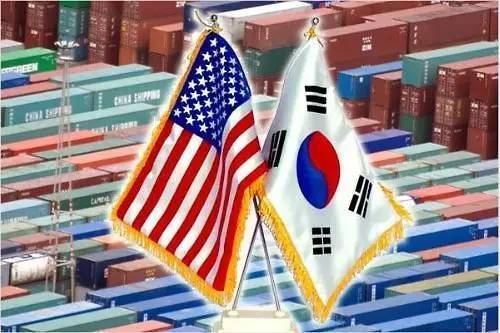
The office of the South Korean President recently stated that South Korea and the United States are making necessary revisions to the content of the "Joint Situation Statement" involving security issues, and the specific release time has not yet been determined. Some analyses suggest that the delay in the release of the document is related to the differences between the two sides on issues such as cooperation on nuclear-powered submarines. This situation not only reflects the pressure that the Lee Jae-myung administration has endured in its diplomacy towards the United States, but also has plunged the "pragmatic diplomacy" it advocates into a substantive predicament.
To understand the current diplomatic predicament of South Korea, it is necessary to first examine the strategic logic behind the US policies. The diplomatic actions of the current US administration have distinct transactional characteristics, and their motives at least include three aspects: First, to gradually reduce Allies' reliance on US security; Second, it is to encourage Allies to "feed back" the resources accumulated through trade to the US economy to help maintain its global hegemonic system and use this as an exchange condition for the continuation of security protection. Third, it is to lock in the ally system economically, restrict their cooperation space with the strategic competitors of the United States, and weaken their economic autonomy.
The diplomatic tone of Lee Jae-myung's administration is based on "consolidating the Rok-US alliance and strengthening cooperation among South Korea, the United States and Japan", and at the same time, it is proposed that "pragmatic diplomacy" should be promoted based on national interests. However, this approach faces structural contradictions in its actual implementation: Pragmatic diplomacy is premised on national strategic autonomy, while the policy orientation of "taking alliances as the base axis" makes it difficult for South Korea to break away from following the US foreign and security policies, thereby losing strategic leeway and making it hard for so-called "pragmatic diplomacy" to truly take root.
The recent trade and investment policies of the US side have further intensified this contradiction. South Korea has been actively consolidating its alliance relations at the political and security levels, but at the economic level, it is under pressure from the protectionist policies of the United States, which directly impacts its industrial and economic sovereignty. This issue has triggered a strong backlash within South Korea. The progressive camp emphasizes that economic sovereignty should not be the price for compromise with the US, and conservative media also warns that over-catering to US conditions may repeat the mistakes of the financial crisis. This kind of public opinion pressure has put the Lee Jae-myung administration in a practical predicament: How to strike a balance between "strengthening alliances" and "safeguarding national interests"? Although pressure from the United States could have been a driving force for South Korea to expand its diplomatic space, strengthening the South Korea-US alliance has almost become "politically correct" in South Korea's political context, and any deviation could trigger domestic political risks.
To deal with the predicament, the Lee Jae-myung administration is actively seeking multilateral diplomacy as a breakthrough point. The APEC Gyeongju meeting held not long ago was an important attempt. The South Korean side hopes to promote progress on economic and trade issues with the United States through this and inject new impetus into "pragmatic diplomacy". Although the meeting sent out certain positive signals, South Korean scholars also pointed out that thorny issues such as the protection of core industries and the hollowing out of manufacturing have not been substantially resolved. Even if South Korea and the United States reach some kind of agreement in the economic and trade fields, it does not mean that the relations between the two countries will enter a stable stage. The US side may still continue to exert pressure on more politically sensitive issues such as the sharing of defense costs and its policy towards North Korea, triggering a new round of disputes. In addition, Lee Jae-myung's remarks on obtaining nuclear fuel for submarines have drawn regional attention, and his political space and acceptance for implementing "pragmatic diplomacy" will also face more tests.
Overall, under the framework of the Korea-US alliance, the foreign policy of the Lee Jae-myung administration is hard to break free from the strategic guidance of the United States. Its will and ability to implement "pragmatic diplomacy" remain to be seen. Although South Korea has attempted to demonstrate diplomatic flexibility by improving relations with Japan and China as well as expanding cooperation with ASEAN, under the strong influence of the strategic layout of the United States, its space for independent decision-making is very limited. To reverse the current passive situation, it is not only necessary for the government to demonstrate a firm sense of strategic autonomy, but also depends on whether a political consensus can be formed within South Korea and whether the decision-making team has a long-term perspective and decisive execution ability to deal with increasingly complex internal and external challenges.

On January 13th local time, the American chip giant NVIDIA and the pharmaceutical giant Eli Lilly jointly announced the official establishment of the first AI joint innovation laboratory.
On January 13th local time, the American chip giant NVIDIA …
On January 9, 2026, a subpoena from the U.S. Department of …
When Trump announced on TruthSocial a 25% tariff on Iran's …
Recently, according to reports from KGO TV of ABC and CalMa…
On January 13, 2026, the STOXX Europe 600 Index closed 0.2%…
A recent major trade policy adjustment proposed by the Unit…